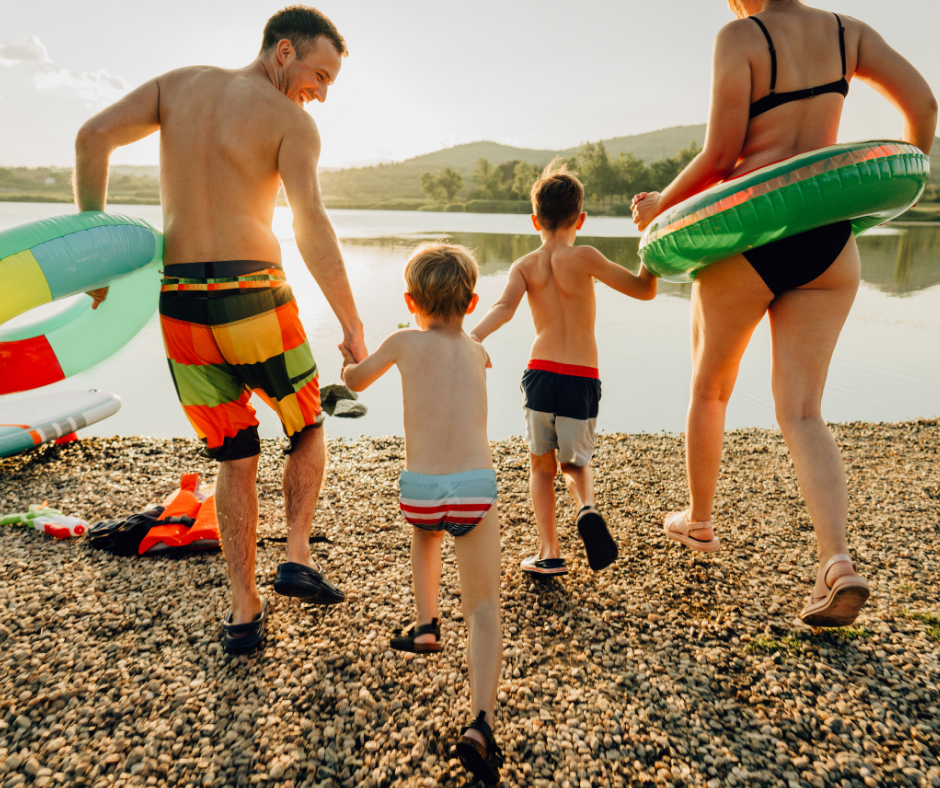Summer is here and people are ready to take flight or hit the road — especially after more than a year of staying home and staying safe from COVID-19. Whether you’re planning a weekend getaway or a major vacation, there’s one thing that should always be top of mind: safety.
This year, it’s especially important to take precautions. Even though COVID-19 restrictions have been eased in many places, you should still play it safe when it comes to summer travels. Some simple planning will help ensure your vacation is relaxing, fun and worry-free.
Here are nine ways to help keep your summer travels safe.
1. Know your risk of catching or spreading COVID-19.
More and more people are getting vaccinated against COVID-19, but the virus is still with us. Know the facts before you go, and plan accordingly.
- According to the Centers for Disease Control and Prevention (CDC), fully vaccinated travelers are less likely to get and spread COVID-19.
- Plan to get vaccinated at least a month before you travel. You may need several weeks to get both doses (if you’re opting for the Pfizer or Moderna vaccine), and it typically takes two weeks after you’re fully vaccinated for the body to build immunity against the virus that causes COVID-19.
- Research your destination’s infection rates, along with COVID-10 restrictions and requirements. Once you arrive, be sure to respect mandates in place, even if you’ve been tested and vaccinated.
- When booking your stay, allow for additional time if your destination has self-quarantine requirements for travelers.
- Pack face masks and always have one accessible. Mask requirements may still exist at some establishments, even if you’re vaccinated.
- If you haven’t been fully vaccinated but still need to travel, follow the guidelines for domestic and international travel before, during and after your trip.
2. Bring a first aid kit.
If you're flying, pack a first aid kit in your checked bags. On the road, keep one in your trunk or glove compartment. Your kit should include a few essentials, such as:
- Bandages, sanitizer and basic first aid supplies
- Insect repellant
- Sunscreen
- Extra masks and a thermometer
- Prescription medication, plus extra to ensure you won't run out
- Your health insurance cards
3. Wash your hands frequently.
- When possible, wash your hands for at least 20 seconds with warm water and soap.
- Pack hand sanitizer and have it handy when soap and water aren’t available.
4. Make sure your vehicle or ride share is safe.
- Avoid unexpected issues or costly repairs on the road. Before your trip, have a mechanic thoroughly inspect your vehicle to ensure it’s safe to drive long distances.
- If you use a ride-sharing service on vacation, make sure vehicles are cleaned and sanitized between passengers and that all safety guidelines are being followed.
- Whether you’re behind the wheel or leave the driving to someone else, always wear your seat belt.
5. If you feel sick, don't travel.
Traveling when sick puts other people at risk and increases the chance of further spreading illness. If you or someone in your travel group isn't feeling well, consider postponing the trip until everyone is healthy. Being safe now will help ensure many more healthy trips in the future.
6. Pick destinations where social distancing is easy.
Think smaller establishments and outdoor activities versus large hotels and crowded casinos. Camping is a great way to see and experience some of America's greatest sites without being in close quarters with lots of people.
7. Understand your insurance before you go.
Depending on your destination, consider purchasing travel insurance to ensure you have enough coverage for unexpected accidents. Will your insurance cover a potential urgent care visit? If not, keep extra money on hand just in case.
8. Make an emergency plan.
Once you finalize your itinerary, take note of urgent care centers in the area you’re visiting in case you or someone you’re traveling with gets injured or falls ill and needs medical treatment.
- If you’re traveling in Washington state, Indigo has more than 30 locations across Puget Sound and in the Spokane area. Our friendly providers are here 8 am to 8 pm every day to treat most minor illnesses and injuries.
- Indigo offers online care 24/7, including E-visits and video visits. Online care is available in Washington and Idaho.
9. Know what do to when you return home
Post-travel recommendations around COVID-19 may vary depending on where you're coming from, what you've done and who you've been with.
- If you haven't been vaccinated, consider getting tested for COVID-19. Even if you’re not experiencing symptoms, it’s better to be safe than sorry, especially if you'll be returning to work after your trip. Indigo Urgent Care locations across Washington offer COVID-19 testing.
- Some places may require self-quarantine periods. Check with your local health department, ask your doctor or call your nearby Indigo Health to learn more about requirements in your area.


